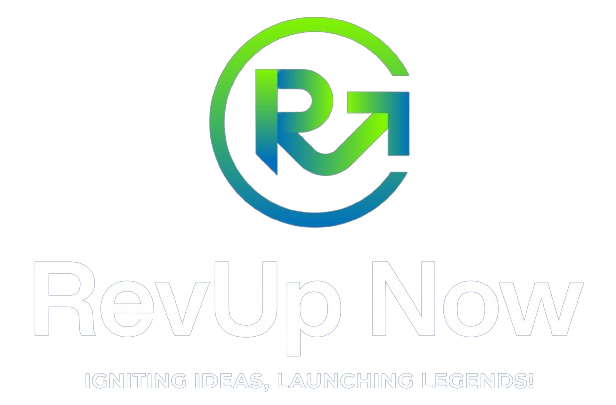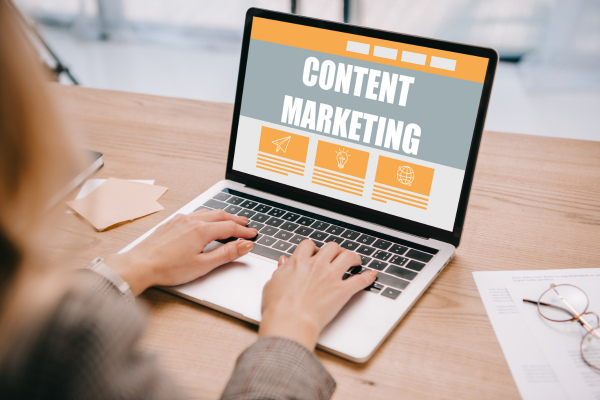Many marketers have sensed a shift in which technology is not just supporting our efforts but also redefining them. The integration of synthetic intelligence (AI) is now not a futuristic concept but a present-day fact. The benefits of integrating AI into your marketing strategy are becoming increasingly glaring.
Businesses are swiftly adopting AI-powered techniques. In fact, AI adoption has surged by over 270% in the past few years, according to a Gartner study. This wave isn’t about keeping up with developments; it is about understanding an essential trade in how we connect with clients.
The core advantages of integrating AI into your advertising strategy center around deeper insights, heightened efficiency, and better purchaser connections. Think about instantly tailoring content to fit the specific desires of each customer. Picture your marketing team getting accurate data to see the precise direction of customer preferences and behavior.
Understanding AI in Marketing
AI, in a marketing context, means using advanced computer systems to do tasks that usually require human intelligence. These can include tasks like collecting and making sense of huge amounts of data, recognizing customer comments, and seeing future patterns. These AI technologies improve our skills.
AI sharpens our choices and improves productivity by quickly sorting through extensive collections of information. The key is AI algorithms that turn regular customer interactions into data insights, ultimately making marketing strategies more accurate and robust.
Think of machine learning that sifts past campaign results to improve new ones, natural language processing that changes how we communicate, or chatbots. Imagine predictive analytics pointing to upcoming market trends or content being tweaked dynamically to grab a site visitor’s attention.
Key Benefits of AI in Marketing
Adopting AI gives marketers benefits, such as reaching into various tasks and results. From scaling personalization to optimizing content for search engines, AI upgrades standard processes to boost output, cut costs, and strengthen customer bonds. Let’s explore this further:
Personalization at Scale
AI lets businesses craft personal touches across extensive campaigns, going beyond standard methods. This tech evaluates vast customer datasets to fine-tune content, suggestions, and ads uniquely.
Think about sending a batch of marketing emails customized with product recommendations based on a user’s purchase history. These changes highlight AI’s role in creating richer customer experiences. Each individual feels valued and connected, fostering brand loyalty.
Improved Customer Insights and Data Analysis
AI’s strength in analyzing complex data greatly deepens our grasp of customers. AI systems expertly sift through vast sets, pulling out key trends, insights, and forecasts quickly.
AI helps marketers identify shifts in shopping behaviors that predict changes in demand. They help companies stay ahead of needs, which keeps a brand relevant and current in consumers’ lives. These insights also shape detailed customer groupings, improving ad targeting precision to increase investment return.
Enhanced Content Creation and Optimization
With AI tools ranging from blog post generators to comprehensive SEO systems, AI boosts creativity and the effect of content online.
Imagine having AI give you SEO-focused headline suggestions for blog articles. Or receive help to create many different social media updates to check engagement with content delivery designed around when each person best responds. AI helps marketers deliver refined visible content and helps marketers make more impact.
Marketing Automation for Efficiency
AI greatly boosts operational efficiency by automating tasks in customer interaction and internal workflows. It helps save valuable resources.
Here is a summary of how different marketing automation powered by AI can improve productivity:
| AI-Powered Task | Function | Benefit |
|---|---|---|
| Chatbots and Virtual Assistants | Engage with customers using natural conversation, handle usual support inquiries, and gather immediate feedback. | Offer quick support, cutting the workload of service groups and allowing concentrated attention on key interaction areas. |
| Email Automation | Tailor email series depending on individual behavior, sending follow-ups or reminders according to interaction signals. | Improve engagement while removing manual tasks by sending personalized follow-ups. |
| Social Media Scheduling | Optimize social media update timing, analyzing audience behaviors and preferences for higher activity. | Ensure timely delivery of content at the right time when audience members will find value. |
| PPC Ad Optimization and Real-Time Bidding | Adjust advertising bids and placements automatically by analyzing past ad results and engagement numbers. | Adjust your spending effectively to yield best conversion rates without needing direct human input all the time. |
Enhanced Customer Engagement and Experience
AI allows engagement by driving interactions and offering quick, solution-based help, greatly upgrading overall consumer happiness and service effectiveness.
AI systems constantly refine the help process through examining conversations, feelings, and predictive patterns. These give valuable insight and let staff take early measures.
AI Tools for Marketing Strategy
Many of the common marketing tools we already know of integrate AI components that expand capabilities. For instance, systems such as ChatGPT and Jasper change content creation by using sophisticated algorithms to develop anything from email updates to large-scale blogs. HubSpot merges predictive insights within its advertising suite, fine-tuning timing and messaging, and boosting conversion possibilities significantly.
Integrating these systems with the marketing tech stack could look something like automatically making draft updates for social platforms directly within campaign plans.
Challenges and Considerations When Using AI in Marketing
Embracing AI marketing tools certainly improves potential in the area of data use. AI algorithms, skilled at evaluating big sets and pointing out complicated links, may boost a marketing strategy, particularly if you have access to a data-rich source.
If access to large-scale datasets isn’t available, companies could turn to third-party AI platforms that integrate with customer data platforms (CDPs). These offer refined data analysis while adhering to necessary rules to prevent misusing user info.
The dependence of AI systems on large, rich, well-kept databases can’t be ignored either. The accuracy of AI’s suggestions strongly relies on the input’s excellence. Poor inputs produce mistakes, potentially leading to ill-guided marketing efforts and dissatisfied clients.
Future Trends in AI Marketing
The future will probably reveal even more combinations between AI and human knowledge in developing content. Envision systems where AI manages baseline duties like data review or developing fundamental material. Human strategists step in to refine these into captivating stories. They incorporate the human elements AI can’t grasp: empathy, understanding across cultures, and complicated ethics.
Hyper-personalized marketing is the following frontier with the objective of moving past group division into personalized communications for each person. Anticipate AI technologies developing the ability to anticipate wants at levels thought unattainable. Consider voice or search-powered visuals with endless applications.
We will probably witness development focused toward making use user friendly. It might shift interaction pathways fully as user interfaces and SEO strategy.
FAQs about The Benefits of Integrating AI into Your Marketing Strategy
What are the advantages of AI in marketing?
AI lets us connect more genuinely and greatly improve the customer experience.
How will AI help marketing?
AI transforms crucial sectors with productivity boosts particularly in industries with data. AI can help with everything from task automation to customized content creation.
How AI can generate marketing strategy?
AI helps refine how well tactics work together for outcomes, raising value for all stakeholders. In areas from programmatic advertising, buying media or placing dynamic pricing models precisely and efficiently are feasible now. AI helps marketers to quickly seize marketplace gaps with quick, educated responses.
What are the potential benefits of AI integration?
Think capabilities around generating concepts or performing advanced analytics. AI is showing insights into past numbers that might otherwise be obscured in massive files or sheets, cutting research hours massively.
AI also enables predictive testing on items or ads through machine learning systems showing likely audience responses prior even launch. Implement AI to help make informed assumptions during key parts of launching new initiatives inside the marketplace.
Conclusion
It’s clear that AI brings significant advantages in efficiency and personalization, completely transforming outdated approaches to client connection. From predictive analytics to automated insights, AI enables businesses to adapt quickly to market changes and anticipate emerging trends with precision.
Beyond enhancing marketing operations, AI also revolutionizes customer service by providing faster response times, personalized interactions, and data-driven support solutions. With AI-powered chatbots, sentiment analysis, and automation, businesses can address customer inquiries more efficiently while improving overall satisfaction.
AI’s development represents an exciting shift, unlocking new opportunities that were previously unseen. When implemented strategically, AI-driven solutions enhance both marketing performance and customer service, ensuring seamless engagement across all touchpoints.
For businesses looking to maximize impact, proactively exploring AI-driven tools is essential. The benefits of AI integration far outweigh any initial setup challenges, leading to improved marketing efficiency, stronger client relationships, and ultimately, higher ROI. The benefits of integrating AI into your marketing strategy will not only enhance personalization but also elevate customer service, positioning businesses for long-term success in a competitive landscape.





